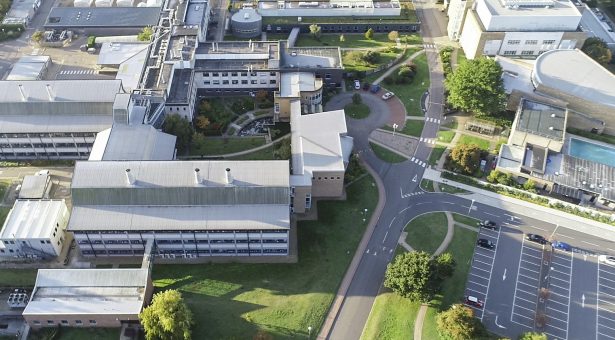Two new Group Leaders appointed

We are delighted to announce the appointment of two new Group Leaders, Professor Matt Hutchings and Dr Philip Carella, who will be joining us in August 2020.
Professor Hutchings is joining us from our Norwich Research Park partners, the University of East Anglia, where his group works on the specialised metabolites made by Streptomyces species and closely related actinomycete bacteria, these include more than half of all known antibiotics.
His group are particularly interested in chemical ecology of these bacteria and their natural products. For example, Streptomyces bacteria interact with plant roots and they can protect plants against infection by pathogenic bacteria and fungi in exchange for food in the form of root exudates.
Understanding these interactions will help find new and useful natural products, including new antibiotics, and will also help protect important crop plants against disease.
Dr Carella will join from the Sainsbury Laboratory at the University of Cambridge, where has been working with Dr Sebastian Schornack, to study interactions between filamentous microbes and non-vascular early divergent land plants.
His goal is to identify key principles underpinning host-pathogen interactions that are shared across land plants. Using distantly-related and evolutionarily insightful models, like the liverwort Marchantia polymorpha, he aims to uncover broadly-conserved plant immunity and susceptibility processes that are relevant to angiosperm crops but are often masked by genetic redundancy.
Professor Hutchings said; “I am really excited about this move. Researchers at the John Innes Centre have pioneered Streptomyces research for more than 50 years and I’m honoured to follow in the footsteps of such luminaries as Sir David Hopwood and Profs Keith Chater, Mervyn Bibb and Mark Buttner.
The John Innes Centre is also renowned for its world-leading plant biology research and this provides an unparalleled opportunity to understand the benefits exchanged by Streptomyces bacteria and their plant hosts.
Ultimately, we want to exploit this knowledge to discover new antibiotics and to improve global food security.”
Professor Carella added, “I’m absolutely thrilled to be joining the John Innes Centre as a group leader this August.
In the coming years, I’ll be looking to establish a curious, enthusiastic, and innovative team that will explore the diversity of defence responses that evolved to protect land plants from pathogen infection. Using comparative macroevolutionary approaches, we will begin to shed light on widely-conserved aspects of plant defence that may ultimately inform future efforts to engineer disease resistance in crops.
I couldn’t be happier to be starting my group at the John Innes Centre and I’m really looking forward to this exciting next step.””
